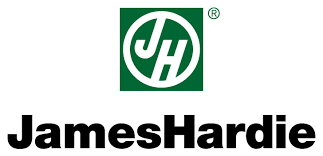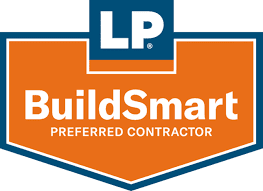Commercial Roofing Systems
What is the right commercial roofing system for your property?
Flexible Financing Available!!



Custom Exteriors
Why do I need to know about commercial roof systems?
As a commercial building owner, understanding your roof system is crucial for protecting your investment, maintaining safety, and managing long-term costs. Your roof is the first line of defense against weather-related damage, and knowing about roof components and conditions helps you identify potential issues before they become costly problems. By knowing the different types of roof systems and their maintenance needs, you can make informed decisions that prolong the life of your roof, prevent unexpected repairs, and ensure your building remains compliant with safety regulations.
Commercial roofing systems
Ethylene Propylene Diene Monomer (EPDM)
Due to its elasticity and durability, EPDM (Ethylene Propylene Diene Monomer) is a popular choice for commercial roofing, especially for low-slope buildings. It’s cost-effective, simple to install, and can last up to 50 years with proper care. EPDM is also energy-efficient and flexible, adapting well to temperature changes. However, sharp objects can puncture it, it comes in limited color options (black or white) and isn’t eco-friendly since it’s made from non-biodegradable materials. While EPDM is a solid option, it’s important to weigh its pros and cons with the help of a local commercial roofing expert.
Thermoplastic Olefin (TPO)
TPO (Thermoplastic Olefin) is a single-ply roofing material that’s gaining popularity for its durability and versatility. It resists weather, punctures, and tears, making it a great choice for our region. TPO comes in various colors and is easy to install, keeping costs down. It’s also more eco-friendly since it can be recycled after use. However, being newer to the market, there’s less data on its long-term performance. TPO can be harder to repair due to the need for hot air welding and may not hold up well in high-heat environments. It’s a smart option for cooler climates, but it’s essential to discuss potential drawbacks with a local roofing expert.
Polyvinyl Chloride (PVC)
PVC (Polyvinyl Chloride) is a single-ply roofing material commonly used for flat or low-slope commercial roofs. It’s highly reflective, helping to reduce heat absorption and lower cooling costs. Known for its durability and resistance to weather and fire, PVC is ideal for extreme climates and commercial environments where exposure to various substances is common. It’s also easy to maintain and clean.
However, PVC roofing can shrink over time, causing seams to pull apart and lead to leaks. It’s limited in roof color options, typically available only in white or light gray, and can be slippery when wet, posing a safety risk. Additionally, PVC roofing can be more expensive than other options. Given its strengths and potential drawbacks, PVC is a solid choice for extreme climates, but it’s essential to consult with an experienced commercial roofing contractor before making a final decision.
Modified Bitumen (Mod Bit)
Modified Bitumen (Mod-Bit) is a popular choice for flat or low-slope roofs in Colorado. It is valued for its durability in extreme weather and 25-year lifespan. Compared to other flat roofing systems, it’s easier to install and highly flexible, expanding and contracting with temperature changes to prevent cracks and leaks. Mod-Bit also reflects sunlight, making it energy-efficient and cost-effective.
However, Mod-Bit is more expensive than traditional asphalt roofing and offers limited color options. Proper installation by a qualified professional is crucial to ensure good adhesion and sealing. While it’s durable, Mod-Bit can be susceptible to punctures from foot traffic, debris, or hail storms. Given Colorado’s frequent severe hail, Mod-Bit may not be the best choice for every building. It’s important to consult with a local flat roof specialist before deciding.
Silicone And Acrylic Roof Coatings
Silicone and Acrylic roof coatings are popular choices for extending the lifespan of existing roofing systems. Both options are low-VOC, making them environmentally friendly by not releasing harmful pollutants. These coatings create a waterproof barrier that helps prevent leaks and water damage.
Silicone coatings can last up to 20 years and are highly resistant to UV rays, which helps prevent deterioration. Acrylic coatings are generally more affordable and require minimal preparation before application. However, silicone coatings are difficult to remove once applied and come in limited colors. Acrylic coatings, while less expensive, are not as durable as silicone and may need more frequent reapplication. They are also more vulnerable to water damage, making them less ideal for areas with heavy rainfall or snow.
Consult with a local roof coating expert to determine whether silicone or acrylic coatings are right for your commercial property.
Metal Roofing Systems
Metal roofing, made from steel, aluminum, copper, or zinc, is highly durable and can last over 50 years with proper maintenance. It withstands harsh weather and reflects sunlight, reducing cooling and heating costs. Metal roofs require minimal maintenance, resisting mold, mildew, and pests, and come in various colors and styles.
However, metal roofing is more expensive and noisy during rain or hail. It’s also prone to dents and scratches, as you can see from the photo to the left that we took during a recent roof inspection. Another thing to consider is that temperature changes may cause warping over time. Consulting a qualified metal roofing contractor is essential for making the right choice for your property.
Contact Us Today
We Service and Support the Following Brands









Contact
Custom Exteriors, LLC
2881 S. 31st Ave, Greeley, CO 80631
109 E. 17th St. Ste 5822, Cheyenne, WY 82001
102 S. Tejon St. Ste 1100, Colorado Springs, CO 80903
404 Broadway, Eagle CO 81631
Phone: 970-460-8714
Toll Free: 800-580-0131
Quick Links
© 2022 Custom Exteriors, LLC

